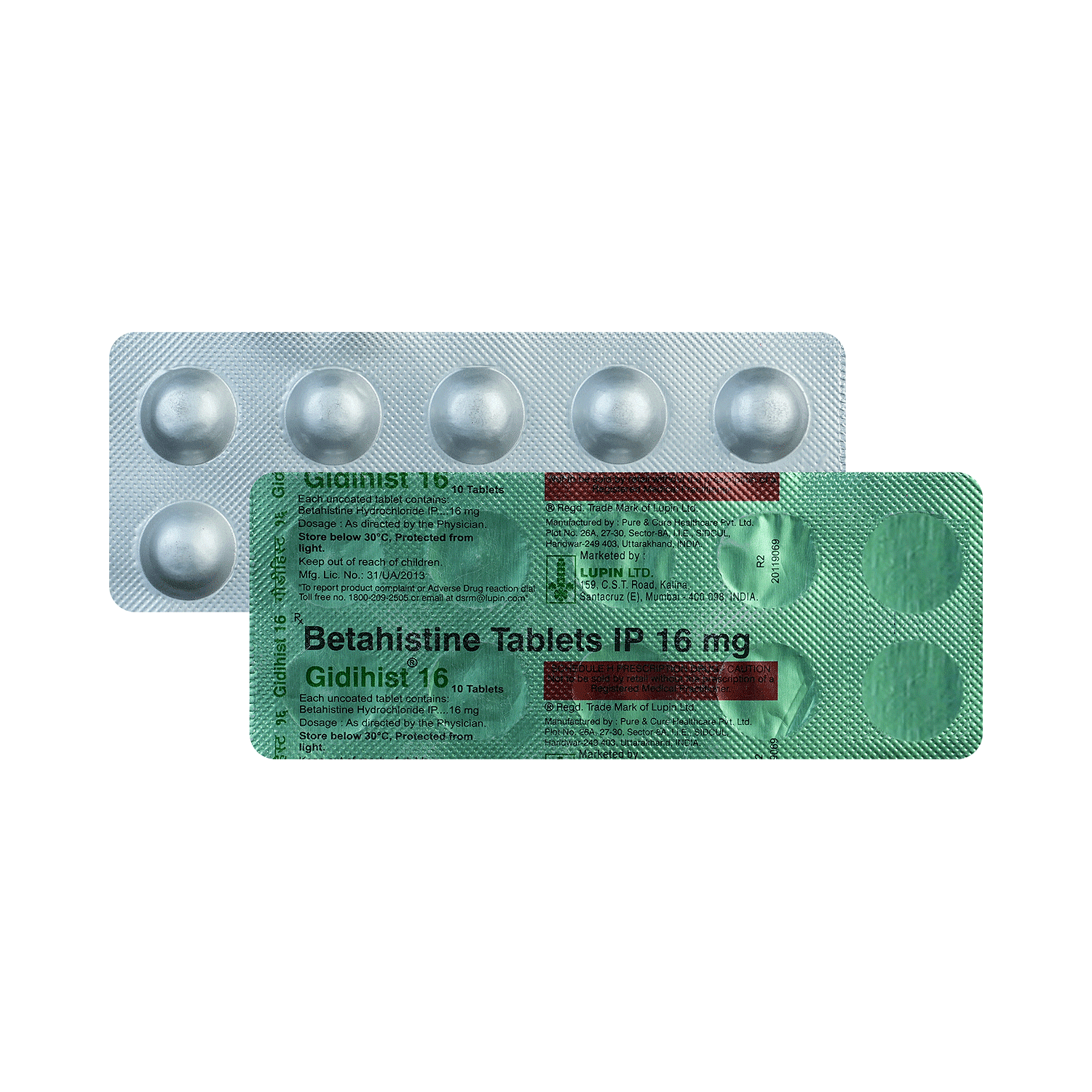

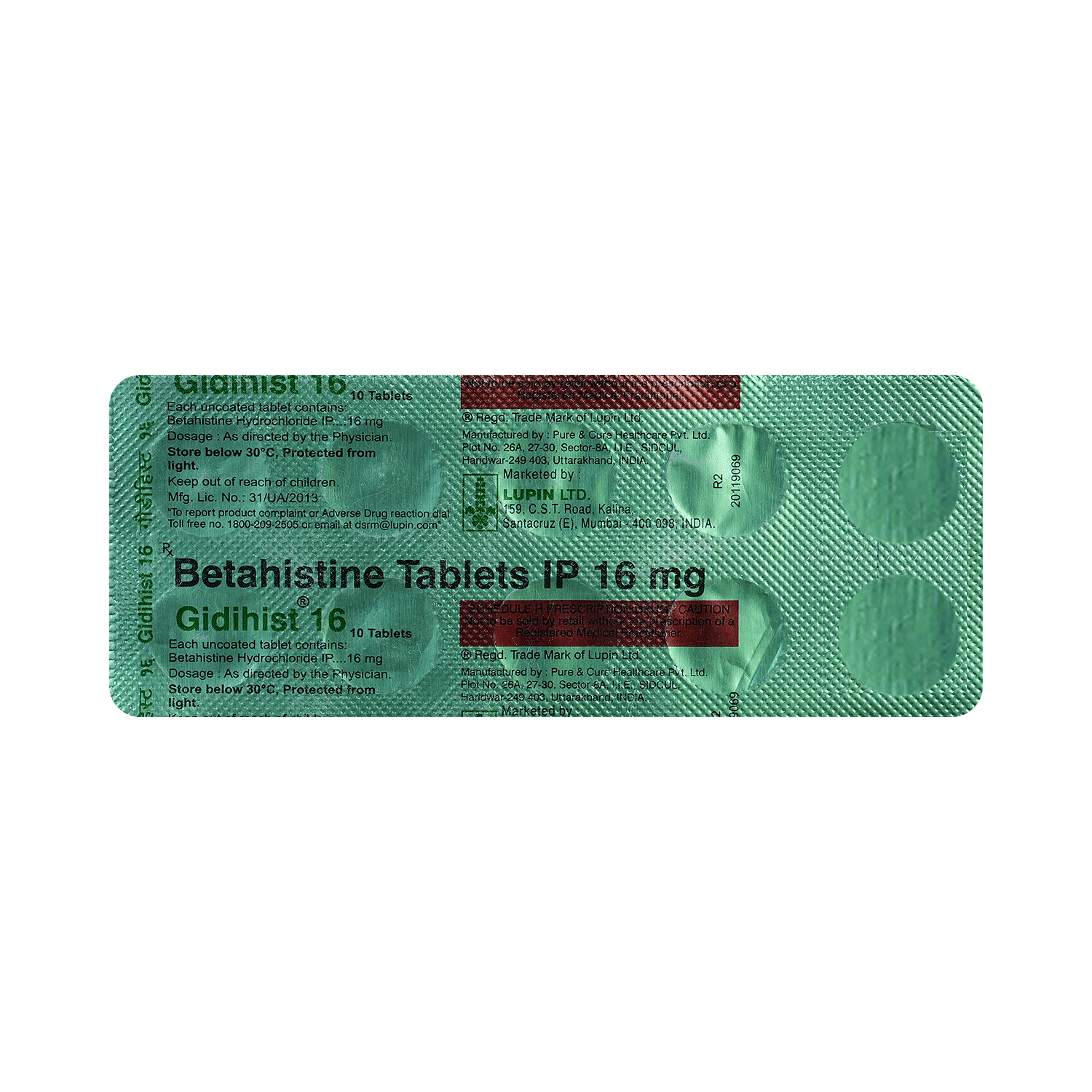
Gidihist 16mg Tablet
Manufacturer
Lupin Ltd
Salt Composition
Betahistine (16mg)
Key Information
Short Description
Gidihist 16mg Tablet is used to prevent and treat a disorder of the inner ear known as Ménière’s disease.
Dosage Form
Tablet
Introduction
Gidihist 16mg Tablet should be swallowed whole with water and taken at the same time(s) each day to get the most benefit. Your doctor will decide what is the correct dose to relieve your symptoms and how often you need to take it. You may need to take this medicine for several months and you should take it for as long as prescribed by your doctor even if you start feeling better. The most common side effects include headache, feeling sick, and indigestion (dyspepsia). You may also get stomach pain and bloating. Taking the medicine with food can help reduce stomach problems.
Directions for Use
Take this medicine in the dose and duration as advised by your doctor. Swallow it as a whole. Do not chew, crush or break it. Gidihist 16mg Tablet may be taken with or without food but it is better to take it at a fixed time.
How it works
Gidihist 16mg Tablet is a histamine analog. It works by improving the blood flow in the inner ear which reduces the pressure of excess fluid there. Excess fluid can send signals to the brain causing nausea, dizziness or spinning sensations (symptoms of Ménière's disease). Gidihist 16mg Tablet additionally dampens down the nerve signals sent from the inner ear to the brain relieving the symptoms of Ménière's disease.
Quick Tips
You have been prescribed Gidihist 16mg Tablet to relieve vertigo (dizziness) It can only decrease the number and severity of attacks but may not completely stop them. Take it at the same time each day to maintain a steady amount of the medicine in your body. Inform your doctor if you have a history of stomach ulcer, asthma, or low blood pressure. Inform your doctor if you are pregnant, planning pregnancy or breastfeeding.
Related Medicines
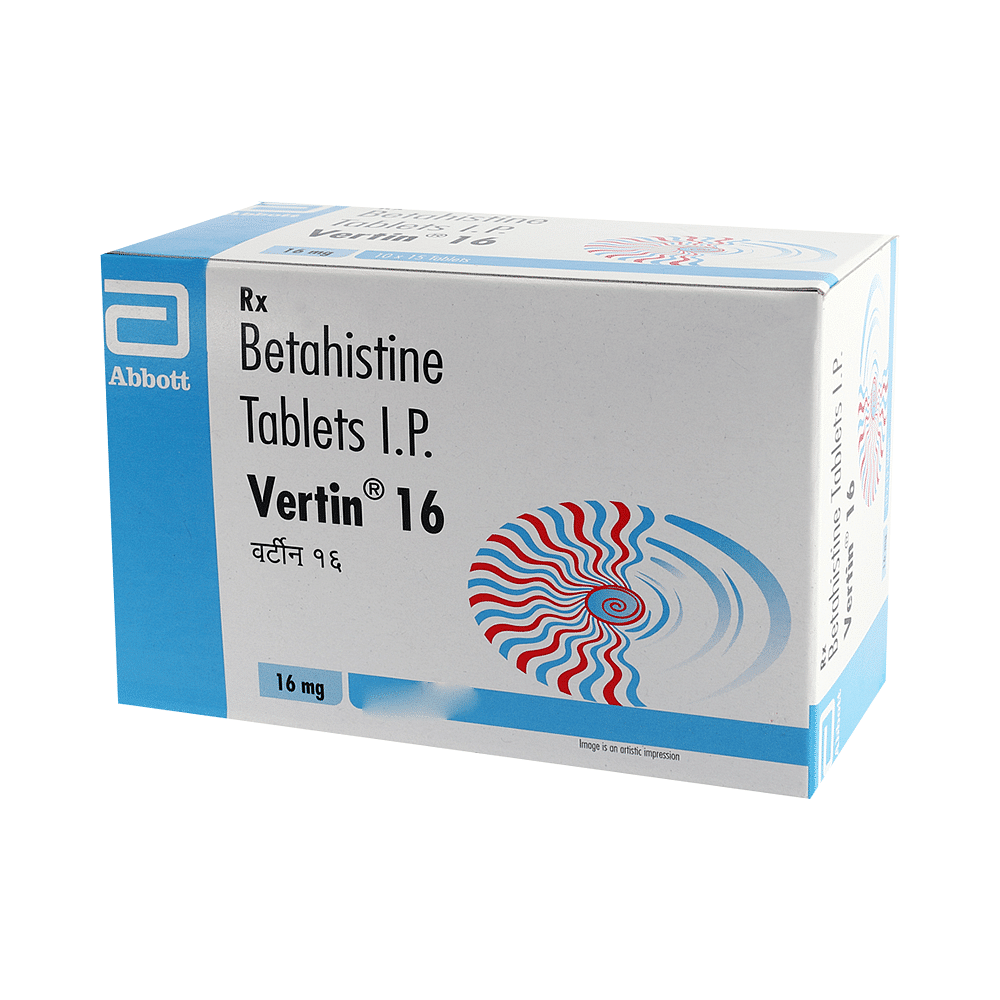
Vertin 16 Tablet
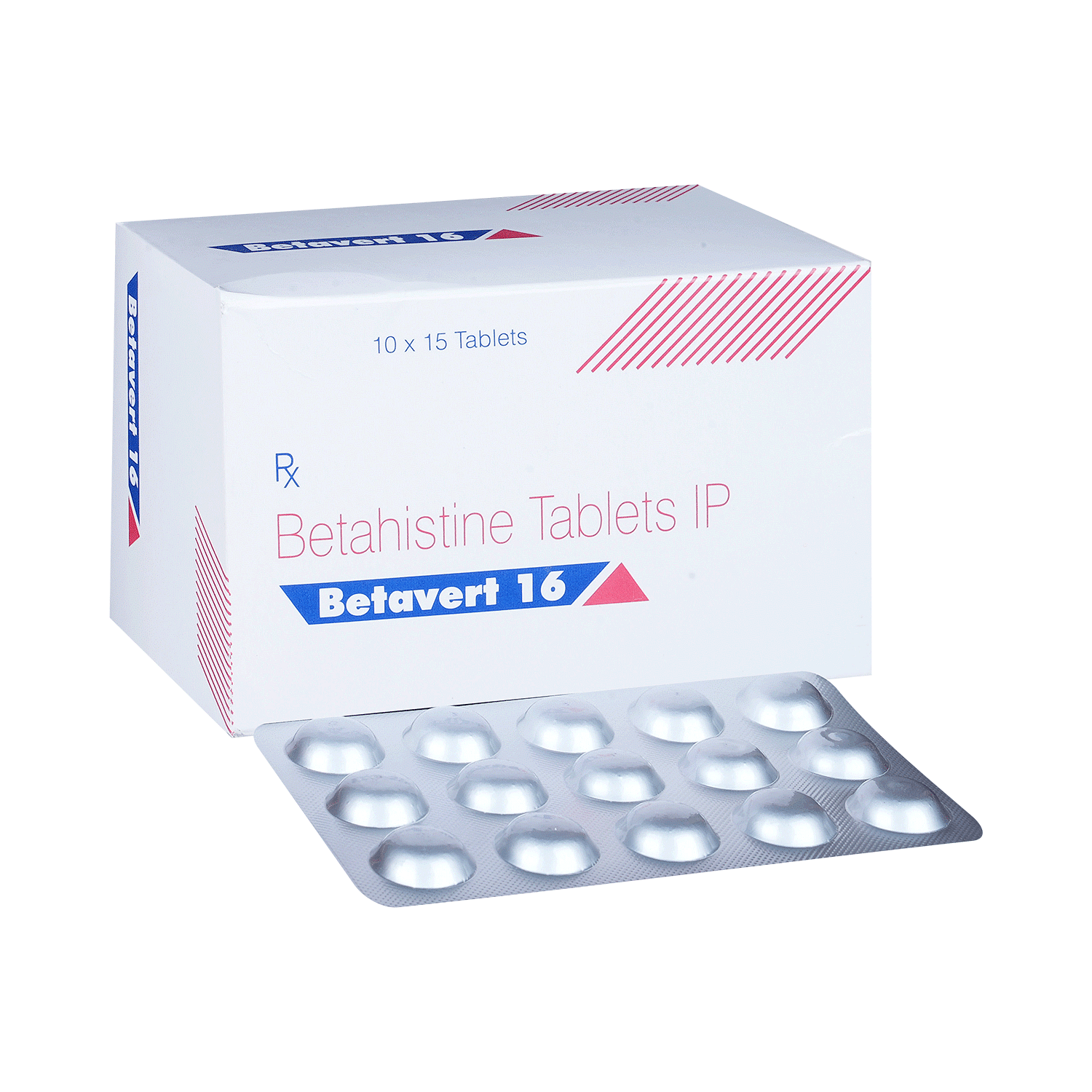
Betavert 16 Tablet
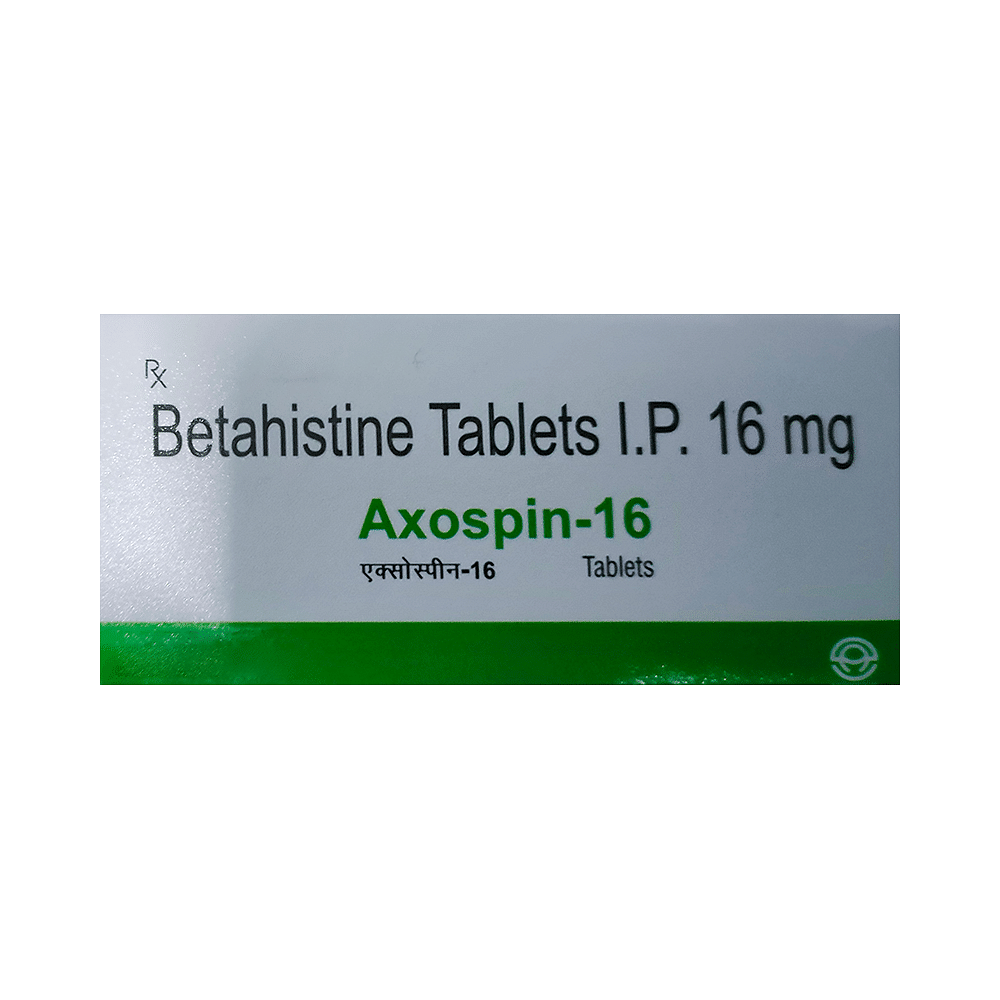
Axospin 16 Tablet
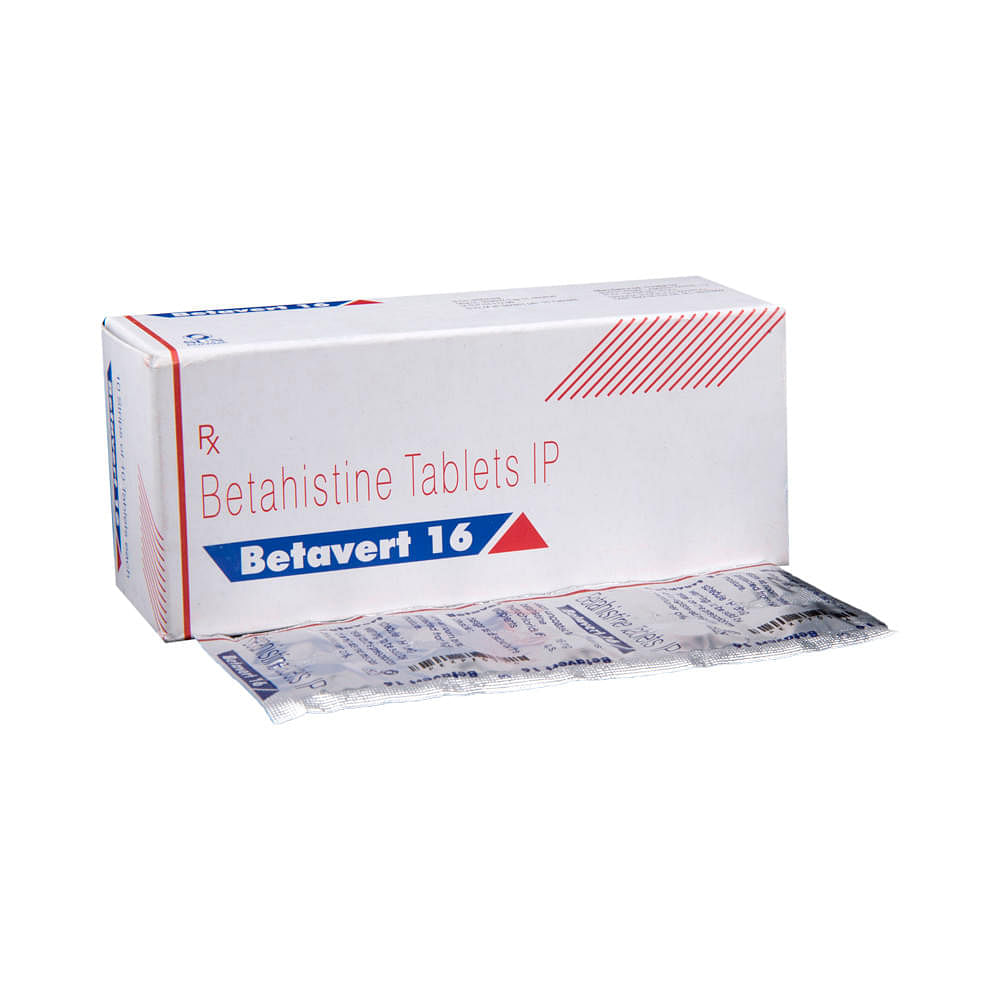
Betavert 16 Tablet

Vertisave 16mg Tablet

Ivahist 16mg Tablet

Hiszen Tablet

Vebular 16mg Tablet

Vertimek 16mg Tablet

Vertivex 16mg Tablet
Frequently asked questions
What is Meniere's disease? Does it go away?
Meniere's disease is a disorder of the inner ear, affecting balance and hearing. Symptoms include vertigo (dizziness), fluctuating hearing loss, tinnitus (ringing in the ears), and pressure in the affected ear. It can lead to nausea and vomiting due to dizziness. Treatment varies based on individual factors. Talking to your doctor helps determine the most effective plan for you.
Is Gidihist 16mg Tablet effective?
Gidihist 16mg Tablet may be effective when used correctly as advised by your doctor. Do not stop taking it if symptoms improve, as this could lead to a return or worsening of the condition. Always follow prescribed dosage and timing.
What are the triggers for Meniere's disease?
Triggers for Meniere's disease can be stress, overwork, fatigue, emotional distress, other illnesses, and changes in air pressure. Certain foods like dairy products, caffeine, alcohol, and high-sodium food can also trigger symptoms. A low-salt diet of 2 grams per day may help control vertigo related to Meniere's disease.
What if I forget to take a dose of Gidihist 16mg Tablet?
If you miss a dose of Gidihist 16mg Tablet, take it as soon as possible. If the next dose is due soon, skip the missed one and continue with your usual schedule. Never double the dose to make up for a missed pill, as this may increase the chance of side effects.
Is stress a reason for vertigo?
While not directly causing vertigo, mental stress can make existing vertigo symptoms worse. However, it won't cause vertigo on its own.
What are the causes of vertigo?
Vertigo can be caused by sudden drops in blood pressure, dehydration, or rapid changes from lying/sitting to standing. Motion sickness, certain medications, and inner ear problems like Meniere's disease or acoustic neuroma can also cause vertigo. Remember, some cases may point towards other disorders (multiple sclerosis, head trauma) as a reason for vertigo.
How long should Gidihist 16mg Tablet be taken?
The duration of treatment with Gidihist 16mg Tablet depends on individual factors. Some people find relief quickly, while others may take longer. Consistent medication use and patience are key; speak to your doctor if you have any concerns about the treatment duration.
What are the common side effects of Gidihist 16mg Tablet?
Gidihist 16mg Tablet may cause mild stomach problems like vomiting, nausea, abdominal distension, and bloating. Taking the medication with food can help minimize these side effects.
Is Gidihist 16mg Tablet effective?
Gidihist 16mg Tablet may be effective when used correctly as advised by your doctor. Do not stop taking it if symptoms improve, as this could lead to a return or worsening of the condition.
What if I forget to take a dose of Gidihist 16mg Tablet?
If you miss a dose of Gidihist 16mg Tablet, take it as soon as possible. If the next dose is due soon, skip the missed one and continue with your usual schedule. Never double the dose to make up for a missed pill, as this may increase the chance of side effects.
How long should Gidihist 16mg Tablet be taken?
Duration of treatment with Gidihist 16mg Tablet can vary depending on your individual response. While some people see immediate relief, others may require longer to find complete improvement. It's crucial to follow your doctor’s recommended timeline and consult them if you have any questions or concerns.


